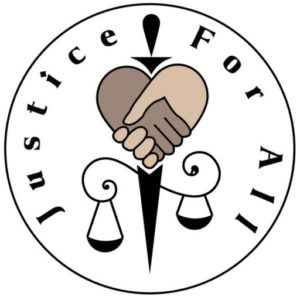Well, it’s been 150 years now.
The 14th Amendment sought out in an attempt to ensure that the “truths” that were asserted to be “self evident” 92 years earlier became a reality for African Americans. It was only as a result of the reconstitution of southern governments (inclusion of African Americans) that the 14th Amendment was ultimately ratified. This would be only partial and short-lived. Whites later rallied behind the Democratic Party, which promised a return of white control (and supremacy). The Ku Klux Klan used violence and intimidation to assist southern Democrats in winning elections. By the 1870s, most southern governments were Democratic controlled. In 1877 in a “Compromise” to settle the hotly contested election (Hayes/Tilden), Hayes was given the White House in exchange for the federal troops pulling out of the south (effectively ending reconstruction). The withdrawal of federal troops from the South in 1877 enabled white southern Democrats to reverse many of the political and social gains African-Americans had realized and ushered us into the proliferation of lynching, black laws, convict leasing and the era of Jim Crow. The Civil Rights Act of 1875 was even overturned and deemed “unconstitutional” in 1883!
Over the years, the 14th Amendment has served as the foundation for Brown v. Board of Education (1954), which struck down racial segregation (overturning Plessy v. Furguson) and Loving v. Virginia (1967), which deemed the prohibition of interracial marriage unconstitutional. It is however more widely known for undergirding decisions like Roe v. Wade (1973) which legalized abortion, Bush v. Gore (2000) which gave the presidential election to George W. Bush, and Obergefell v. Hodges (2015) which constitutionalized same-sex marriage. Notably, there was a conscious decision by the Supreme Court to avoid the use of the 14th Amendment in support of the Civil Rights Act of 1964. Between 1890 and 1910, 14th Amendment cases involving corporations vastly outnumbered those involving the rights of blacks, 288 to 19.
The 14th Amendment has often been cited in defending cases calling for the elimination of affirmative action (particularly in colleges and universities), introducing so-called reverse discrimination. From Fisher v. Texas to, Regents of the University of California v. Bakke, numerous attempts have been made to do so. In early July, 2018, this administration rolled back the affirmative action guidelines for colleges and universities. The brief filings in the “Students for Fair Admission, INC., v. Harvard “ litigation” (reverse discrimination) are due at the end of this month while the President is poised to seat yet another Supreme Court Justice. The 14th Amendment stands at the intersection of overturning Roe v. Wade AS WELL as Regents of the University of California v. Bakke (college admission affirmative action).
Race and racism has been used throughout all history to obtain and sustain political and economic power. The turmoil and adversity leading to the ratification of the 14th Amendment was severe and the price high. It came at the cost of the lives of countless African Americans and the obliteration of their history and the hopes of their future. It came as at the cost of the most horrific and bloodiest war in United States history. The 14th Amendment is yet another example of efforts that have been made throughout all history to right that which has been wronged. It along with all other efforts has been faced with white backlashes of increasing violence and complexity. And once again, adding insult to injury is that the 14th Amendment today serves as just another tool that was designed to make things better but was co opted to make things worse.
Happy Sesquicentennial, 14th Amendment!
Mark Hughes,
Executive Director,
Justice For All
Racial Justice Reform Coalition
Donate to Justice For All here.
Justice For All pursues racial justice within Vermont’s criminal justice system through advocacy, education, and relationship-building.
Here are options to become a member, provide organizational support or simply provide a contribution.
Thank you for your support!

